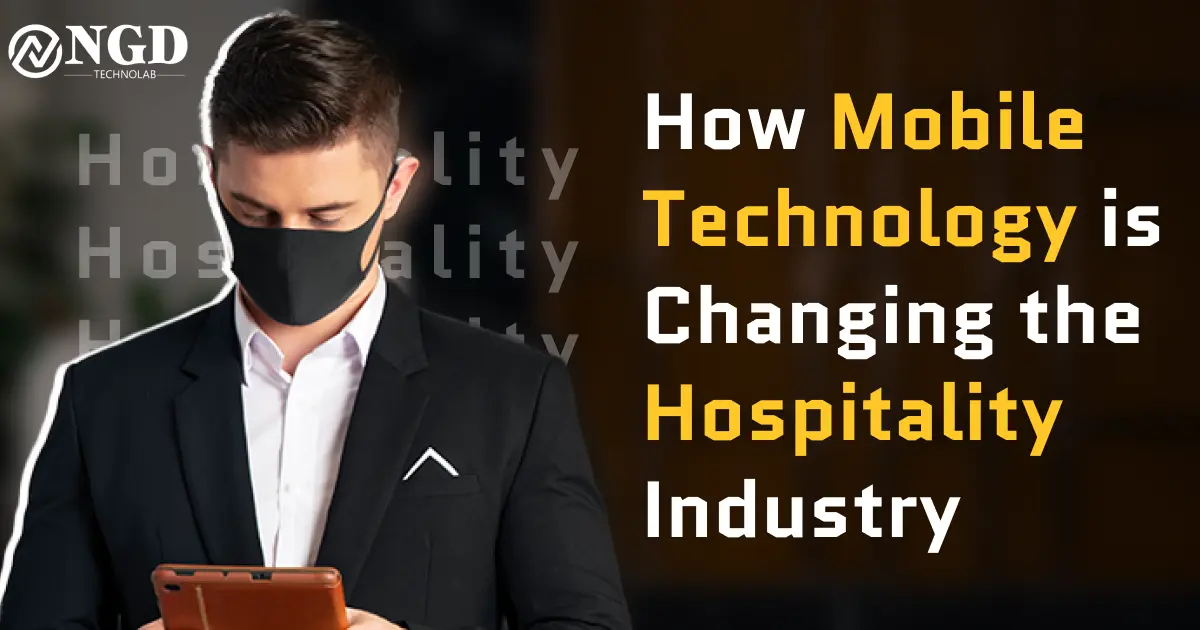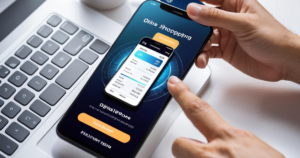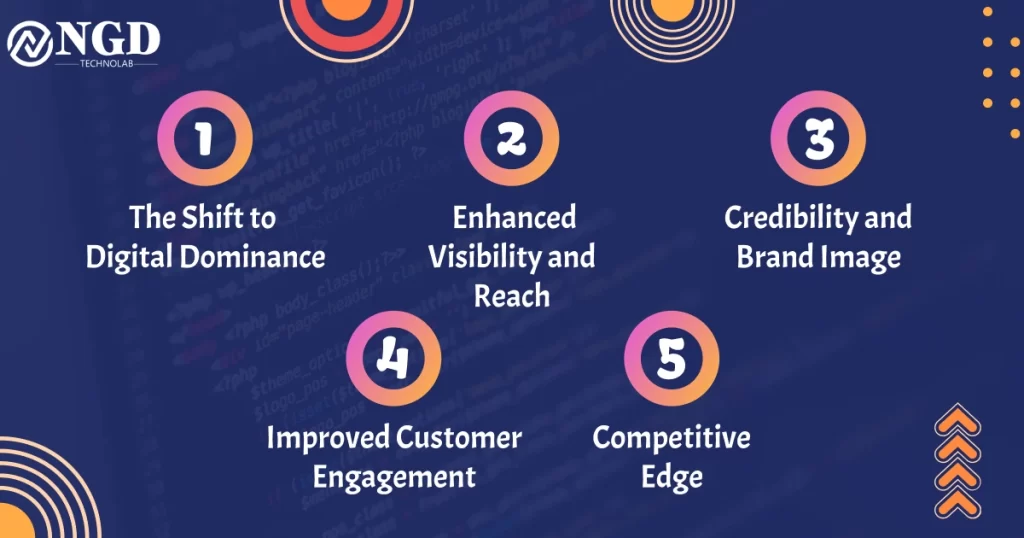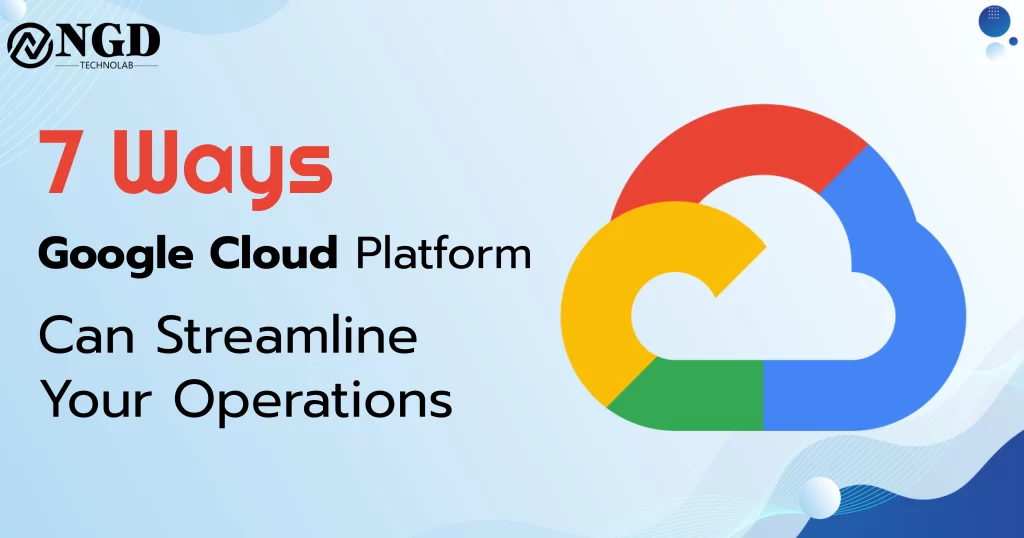How Mobile Technology is Changing the Hospitality Industry?
-
 Prashant Padmani
Prashant Padmani

The hospitality industry is changing a lot because of mobile technology. In an era where smartphones and tablets are ubiquitous, businesses in the hospitality sector are leveraging innovative mobile solutions to enhance customer experiences, streamline operations, and stay ahead in a competitive market. In this comprehensive blog, we’ll delve into the myriad ways mobile technology is reshaping the landscape of the hospitality industry, from customer engagement to operational efficiency.
Mobile Technology in Customer Engagement
Mobile booking apps have become a cornerstone of the hospitality industry, providing users with the convenience of booking accommodations, flights, and activities on the go. The seamless integration of these apps with hotel systems allows for real-time updates and ensures a smooth reservation process.
Moving from the old-fashioned way of booking to using mobile apps has made things much better for users. Now, people can easily check out different choices, read what others have said, and decide more wisely. For hotel owners, this means more people booking directly and being able to talk directly to their guests.
One of the key advantages of mobile technology in hospitality is its capacity to deliver personalized experiences. Hotels can leverage guest data obtained through mobile apps to tailor services according to individual preferences. From room preferences to dietary restrictions, mobile technology enables hotels to anticipate and meet guest expectations, fostering loyalty and positive reviews.
Mobile technology is super cool in hotels because it makes everything personal! Hotels use information from phone apps to give you exactly what you like. Whether it’s your favorite type of room or special food needs, mobile tech helps hotels know what you want. This makes you happy, and happy customers mean people love the hotel more and say nice things about it!
Gone are the days of waiting in long queues at the reception desk. Mobile check-in and check-out options not only save time for guests but also streamline operations for hotel staff. Mobile check-ins allow guests to bypass the front desk, using their smartphones to access their rooms, while mobile check-outs facilitate a hassle-free departure process.
Operational Efficiency through Mobile Solutions
The integration of mPOS systems in the hospitality industry has transformed the way transactions are conducted. Mobile devices equipped with secure payment processing capabilities enable staff to take orders and payments anywhere on the premises, reducing wait times and enhancing overall operational efficiency.
Mobile technology has revolutionized inventory management in the hospitality sector. Through mobile applications, businesses can track and manage inventory levels in real-time. This not only prevents stockouts and overstock situations but also contributes to cost savings by optimizing procurement processes.
Effective communication among staff members is crucial for providing seamless services to guests. Mobile devices facilitate instant communication, allowing staff to coordinate efficiently, respond promptly to guest requests, and address issues in real-time. This enhances overall guest satisfaction and contributes to a positive reputation for the establishment.
Enhancing Guest Services with Mobile Innovations
The integration of in-room technology with mobile controls elevates the guest experience to new heights. From controlling room temperature and lighting to accessing entertainment options, guests can customize their environment with a few taps on their smartphones. This level of control enhances comfort and convenience, setting a new standard for modern hospitality.
Mobile concierge services bring a new dimension to guest services. Through dedicated mobile apps, guests can access a wide range of concierge services, from booking spa appointments to ordering room service. This not only enhances the guest experience but also allows hotels to upsell additional services, boosting revenue.
The convenience of mobile payments is transforming the way transactions occur in the hospitality industry. Mobile wallets, contactless payments, and digital currencies offer guests a secure and efficient way to settle bills. The integration of mobile payment solutions streamlines the check-out process, reducing wait times and improving overall customer satisfaction.
Data Security Challenges and Solutions in the Mobile Era
As the use of mobile technology in hospitality grows, so do concerns about data security. Safeguarding guest information is paramount, and hotels must implement robust security measures to protect sensitive data from cyber threats. Encryption, secure payment gateways, and regular security audits are essential components of a comprehensive data security strategy.
The adoption of mobile payment systems necessitates a focus on secure transactions. Hotels must ensure that their mobile payment solutions comply with industry standards for encryption and data protection. Implementing two-factor authentication and regularly updating security protocols are critical steps in maintaining secure mobile payment systems.
With the implementation of the General Data Protection Regulation (GDPR), hotels must prioritize compliance when collecting and processing guest data through mobile apps. Obtaining explicit consent, providing transparent privacy policies, and allowing guests control over their data are essential practices for GDPR compliance in the mobile hospitality landscape.
The Future Landscape: Emerging Trends in Mobile Hospitality
Augmented reality (AR) is poised to revolutionize guest experiences in the hospitality industry. From virtual hotel tours to interactive maps, AR applications enhance the way guests engage with their surroundings. Hotels embracing AR technologies gain a competitive edge by providing innovative and immersive experiences.
Voice-activated technologies, such as smart speakers and virtual assistants, are becoming integral to the guest experience. Guests can use voice commands to control in-room devices, request information, and even place orders for services. Implementing voice-activated technologies not only enhances convenience but also positions hotels as tech-savvy and forward-thinking.
The Internet of Things (IoT) is transforming hotels into smart, interconnected spaces. IoT devices, such as smart thermostats, connected appliances, and automated lighting, contribute to energy efficiency and improved guest comfort. Smart hotels leveraging IoT technologies not only reduce operational costs but also appeal to eco-conscious and tech-savvy guests.
Conclusion
In conclusion, the impact of mobile technology on the hospitality industry is nothing short of revolutionary. From reshaping customer engagement to optimizing operational efficiency, mobile innovations are driving significant changes. As the industry continues to evolve, embracing emerging technologies and addressing associated challenges will be key to staying competitive and meeting the evolving expectations of guests.
Frequently Asked Questions
Mobile technology has revolutionized the booking process, providing guests with the convenience of mobile booking apps. These apps offer real-time updates, personalized experiences, and the ability to make informed decisions, ultimately reshaping the way guests secure accommodations.
Mobile technology enhances operational efficiency by introducing solutions like Mobile Point of Sale (mPOS) systems, streamlined inventory management, and improved staff coordination through mobile communication. These innovations contribute to a more seamless and efficient hospitality operation.
Data security in the mobile era is ensured through measures like encryption, secure mobile payment systems, and compliance with regulations such as GDPR. Hotels prioritize safeguarding guest information, implementing secure payment gateways, and maintaining GDPR compliance to protect sensitive data.
Emerging trends in mobile hospitality include the integration of Augmented Reality (AR) for immersive guest experiences, the adoption of voice-activated technologies for enhanced convenience, and the implementation of the Internet of Things (IoT) for smart and interconnected hotel spaces.
Mobile concierge services offer guests a range of personalized services accessible through dedicated mobile apps. From booking spa appointments to ordering room service, these services enhance the guest experience by providing convenience and customization options.
Get Free consultation and let us know about your custom web and Mobile App project idea

Over 14+ years of work experience, we have built 210+ web and mobile apps
We can help you with
- Dedicated Developer
- delivering high-quality development
- Custom Mobile App Development
- Innovative Solution For Startups and Enterprise
Get Free consultation and let us know about your custom web and Mobile App project idea

Over 10 years of work experience, we have built 210+ web and mobile apps
We can help you with
- Dedicated Developer
- delivering high-quality development
- Custom Mobile App Development
- Innovative Solution For Startups and Enterprise
Latest Blogs
Explore the Latest Blogs on Trends and Technology.





